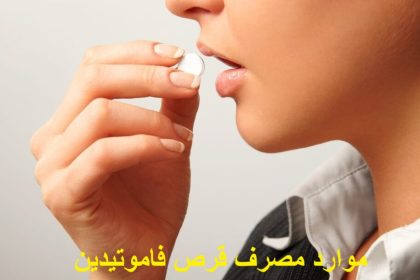
The best pill for mental and practical obsessions
Obsessive-compulsive disorder (OCD) is a chronic illness that can cause significant distress and disability. It is a complex disorder with different dimensions of symptoms, some of which are less well known. Early diagnosis and practical OCD-specific treatments may improve outcomes, but there is often a delay in diagnosis. Patients can experience significant improvement with treatment, and some may achieve complete recovery. In the following, we will introduce the best pills for severe obsessive thoughts and what should we eat for obsessive thoughts?
Also read: Is Irocast tablet good for cough?
The best pill for obsessive compulsive disorder
Some psychiatric medications can help control OCD obsessions and compulsions. Antidepressants are usually tried first.
Antidepressants approved by the US Food and Drug Administration (FDA) for the treatment of obsessive-compulsive disorder include:
- Fluoxetine (Prozac) for adults and children 7 years and older.
- Fluvoxamine (Levox) for adults and children 8 years and older.
- Paroxetine (Paxil) for adults only.
- Sertraline (Zoloft) for adults and children 6 years and older.
- Clomipramine (Anafranil) for adults and children 10 years and older.
However, your doctor may prescribe other antidepressants and psychiatric medications.


The best pill for extreme practical obsession
SSRIs, or selective serotonin reuptake inhibitors, work best in reducing severe obsessive-compulsive symptoms, especially when combined with cognitive behavioral therapy (CBT). The American Psychiatric Association recommends switching to another SSRI if another SSRI does not help. If SSRIs do not improve OCD, TCAs such as clomipramine may be used. Some selective serotonin reuptake inhibitors include (Prozac), sertraline (Zoloft), fluvoxamine (Levox), and paroxetine (Paxil).
Also read: The best herbal erection pills without side effects
What to eat for obsession?
If you want to know what to eat for obsessive compulsive disorder, researchers believe that a diet rich in whole grains and protein may help reduce obsessive-compulsive symptoms and prevent anxiety reactions.
Serotonin and obsessions
Foods that affect serotonin can be effective in reducing obsessive-compulsive symptoms. The amino acid tryptophan, which has a direct effect on serotonin production, is found in a variety of foods, including protein-rich foods such as turkey, chicken, milk, eggs, and cheese.
consumption of whole grains such as brown rice and quinoa; beans and legumes; pumpkin; sunflower and sesame seeds; Nuts; And root vegetables are important for overcoming obsessions. Increasing your intake of these foods can increase serotonin production in your brain, potentially leading to a beneficial reduction in OCD symptoms.
Hypoglycemia and obsession
Another interesting theory about the development of obsessions is the effect of excessive secretion of adrenaline on hypoglycemia. Obsessive-compulsive disorder may be directly related to insulin resistance, according to researchers. Insulin resistance occurs when your body is unable to stabilize its blood sugar levels, leading to increased production of stress hormones such as adrenaline and cortisol. These hormones increase anxiety and panic. So following a hypoglycemic diet may help normalize blood sugar levels and prevent excessive release of stress hormones, which in turn may reduce or prevent OCD symptoms.
The best way to treat obsessive compulsive disorder without drugs
Sometimes, psychotherapy and medications cannot control the symptoms of obsessive compulsive disorder. In cases that do not respond to treatment, other options may be offered:
Exposure and operant response prevention (ERP)
Comprehensive treatment programs that emphasize the principles of exposure therapy, or ERP, may help people with OCD who struggle with their ability to function because of the severity of their symptoms. These programs usually last several weeks.
deep brain stimulation (DBS)
is approved for the treatment of obsessive-compulsive disorder in adults 18 years of age and older who do not respond to conventional treatment. Deep brain stimulation involves implanting electrodes in specific areas of your brain. These electrodes produce electrical impulses that may help control unusual impulses. Deep brain stimulation therapy is not widely available, and is rarely used.
brain magnetic stimulation (TMS)
This treatment method is approved for adults. These devices are used when traditional treatment has not been effective. This treatment does not require surgery. It uses magnetic fields to stimulate nerve cells in the brain to improve obsessive-compulsive symptoms. During a magnetic brain stimulation session, an electromagnetic coil is placed on your scalp near your forehead. The coil creates a magnetic pulse that stimulates nerve cells in your brain.
If you're considering DBS or TMS, talk to your doctor to make sure you understand all the pros and cons and potential health risks.
Also read: The best Iranian and foreign iron tablets for women


Pills for washing obsession
Obsessive-compulsive disorder (OCD) is a cleaning-focused subset of obsessive-compulsive disorder (OCD), a mental disorder characterized by obsessive thoughts and compulsive behaviors related to cleaning.
People with cleanliness obsessions have a compulsion to clean themselves or their surroundings excessively and frequently, even when there is no real need. These compulsive behaviors are caused by extreme anxiety and the belief that cleanliness will prevent harm or disaster. These people may strongly dislike dirt, germs or pollution.
Pills for obsessive-compulsive disorder include selective serotonin reuptake inhibitors (SSRIs). Some examples include fluoxetine (Prozac), sertraline (Zoloft), fluvoxamine (Levox), and paroxetine (Paxil). They work by balancing serotonin in the brain, which can reduce the severity of OCD symptoms.
Tricyclic antidepressant clomipramine (Anafranil): Clomipramine may be as effective as SSRIs. However, it has more potential side effects.
Also read: The best birth control pills without side effects
last word
We hope that this post from Alamo on the topic of the best pill for obsessive compulsive disorder has been useful for you. However, don't forget that arbitrary use of these drugs can have irreparable consequences and should be avoided.
RCO NEWS
RCO














